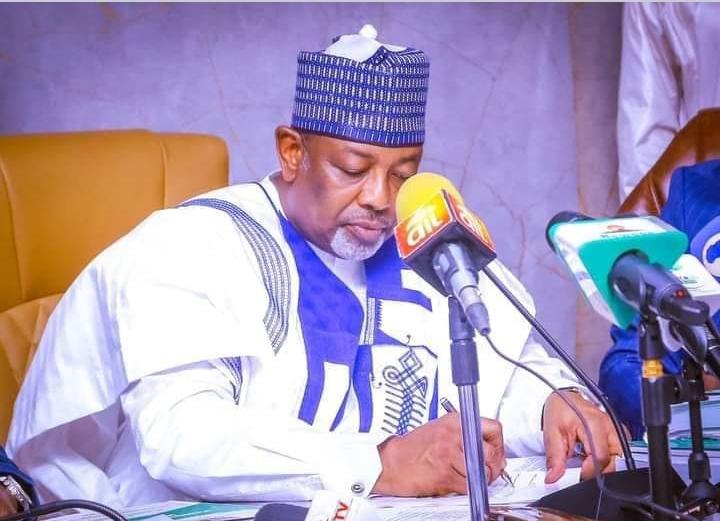The Federal Government of Nigeria is set to expand its subsidized rice program to combat the rising food insecurity affecting millions. As outlined by a director at the Federal Ministry of Agriculture and Food Security, new sales points for the subsidized rice are expected to open in Lagos, Kano, and Borno states shortly. This initiative, previously introduced in Abuja, is part of a comprehensive strategy aimed at ensuring basic food access for all Nigerians. It comes at a time when the price for a 50kg bag of rice has soared to nearly N90,000 in many locations, significantly above the subsidized rate of N40,000 that the government aims to provide. The program involves the distribution of approximately 30,000 metric tonnes of rice, which equates to about 1,000 trucks carrying 600 bags each.
The Minister of Agriculture and Food Security, Abubakar Kyari, highlighted this initiative as a critical part of the government’s intention to alleviate hunger among Nigerians. He mentioned that the subsidized rice is both a response to soaring market prices and a key step in a wider effort to ensure food security. This expansion reflects a concerted effort by the government to support the citizens during prevailing economic difficulties. Officals expressed optimism regarding the rollout of the program, emphasizing the need for active engagement with the population, especially in states that are about to commence sales, despite prior claims suggesting that sales in the Federal Capital Territory had ceased.
However, the implementation of the program has not been without challenges. An official from the Ministry reported ongoing issues regarding public cooperation, particularly at the National Agricultural Insurance Corporation (NAIC) center where the sales are currently conducted. Instances of disruption and attempts to bypass purchasing protocols were noted, which have complicated the process of distributing the subsidized rice effectively. Reports of individuals trying to hijack the initiative to sell the rice on the black market have frustrated officials, who must balance rapid access to aid with maintaining the program’s integrity.
Nonetheless, the ministry remains dedicated to overcoming these hurdles. Officials reiterated their commitment to ensuring that the most vulnerable populations—particularly low-income earners—receive proper access to subsidized rice. This endeavor is viewed as a vital resource for helping families confront the mounting pressures of rising food prices in Nigeria. The government is aiming for a seamless rollout in the states selected for the expanded program, with expectations to initiate sales shortly.
The urgency of the program is underscored by the alarming rise in food inflation rates across the country. According to the National Bureau of Statistics, the food inflation rate increased to 37.52 percent year-on-year in August 2024, a significant jump from the previous year. Additionally, economic pressures have worsened due to the devaluation of the naira, diminishing the purchasing power of everyday Nigerians. As local prices continue to escalate, initiatives that provide affordable staple foods become increasingly crucial.
In conjunction with the subsidized rice program, the Minister of Finance, Wale Edun, addressed the need for Nigeria to shift away from dependence on imported food sources. He emphasized self-sufficiency as a vital priority for the country’s economic recovery strategy. Edun’s call to action advocates for bolstering local agricultural production and discouraging excessive food imports to prevent market disruptions. He stressed that the future of Nigeria’s economy hinges on the ability of its citizens to produce enough food to meet their own needs, which reinforces the overarching objectives of programs like subsidized rice. Overall, these efforts reflect a multi-pronged approach to addressing food insecurity, enhancing local agricultural capacity, and stabilizing prices in the Nigerian economy.














